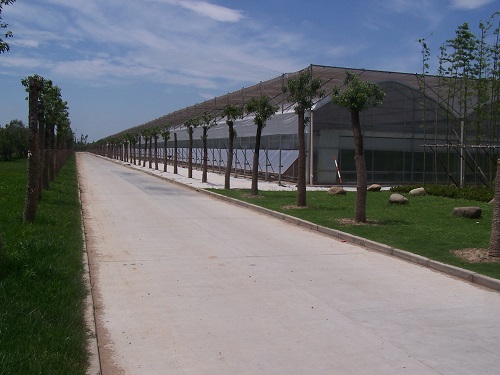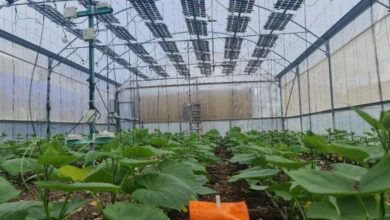.jpg)
Today Israel is recognized as a world leader in agriculture and irrigation technologies. The basis of these technologies goes all the way back to Israel’s kibbutz movement, the socialist communes which were focused on agriculture, and which made up the backbone of Israeli society in its founding years in the 1940’s and 1950’s. Drip irrigation, for example, was developed by Simcha Blass in Kibbutz Hatzerim in the 1960’s, and today is the technological basis for international irrigation leader Netafim. Another success story arises from Israel’s plastics industry – as plastic coverings was one of the success factors in Israel’s agricultural advancement. Kibbutz Gazit, located in Israel’s northern Galilee region, has been manufacturing plastics products for decades, so has Polygal, a plastics manufacturer in Kibbutz Ramat Hashofet. Both these companies expanded their international activities over the last ten years. Four years ago, they joined forces to create “Plazit Polygal Group”. This company has emerged as a leading plastics supplier, for agriculture and other industries, with seven factories around the globe, over 500 employees, and over US$250M in sales a year. “Our strategy of manufacturing in different global locations minimizes transport costs, and enables us to provide our advanced plastics products at very competitive prices to different markets in the world,” explains Roman Zalessky, Plazit Polygal Group’s Marketing Communications Manager. The company operates factories in Russia, Chile, Bulgaria, Spain and the U.S., each with 50-100 employees, as well as two larger factories in Israel. Plazit Polygal Group’s main offering to growers is the Polygal Standard product, designed for use in most conventional roofing and glazing applications. The Israeli R&D center in Kibbutz Ramat Hashofet, has developed a product which provides a number of benefits for greenhouses. “The product offers excellent insulation, so the heat doesn’t escape, together with high transparency enabling 80% of light to penetrate the plastic roofing,” says Zalessky. The product enables the grower to save around 40% in heating costs, which is quite dramatic. The product is 6-8mm thick and one of its main advantages, according to Zalessky, is its strength. “Polygal Standard covering is almost unbreakable, this is a huge advantage for growers, as it is not affected by hail, for example.” The technology also includes a unique layer which also enables maximum transparency and prevents water drops to drip onto plant leaves, which prevents harm to plants. “Our R&D teams are constantly working to improve the performance of the products,” concludes Zalessky. Plazit Polygal Group’s solutions are sold by a network of distributors and resellers worldwide.





